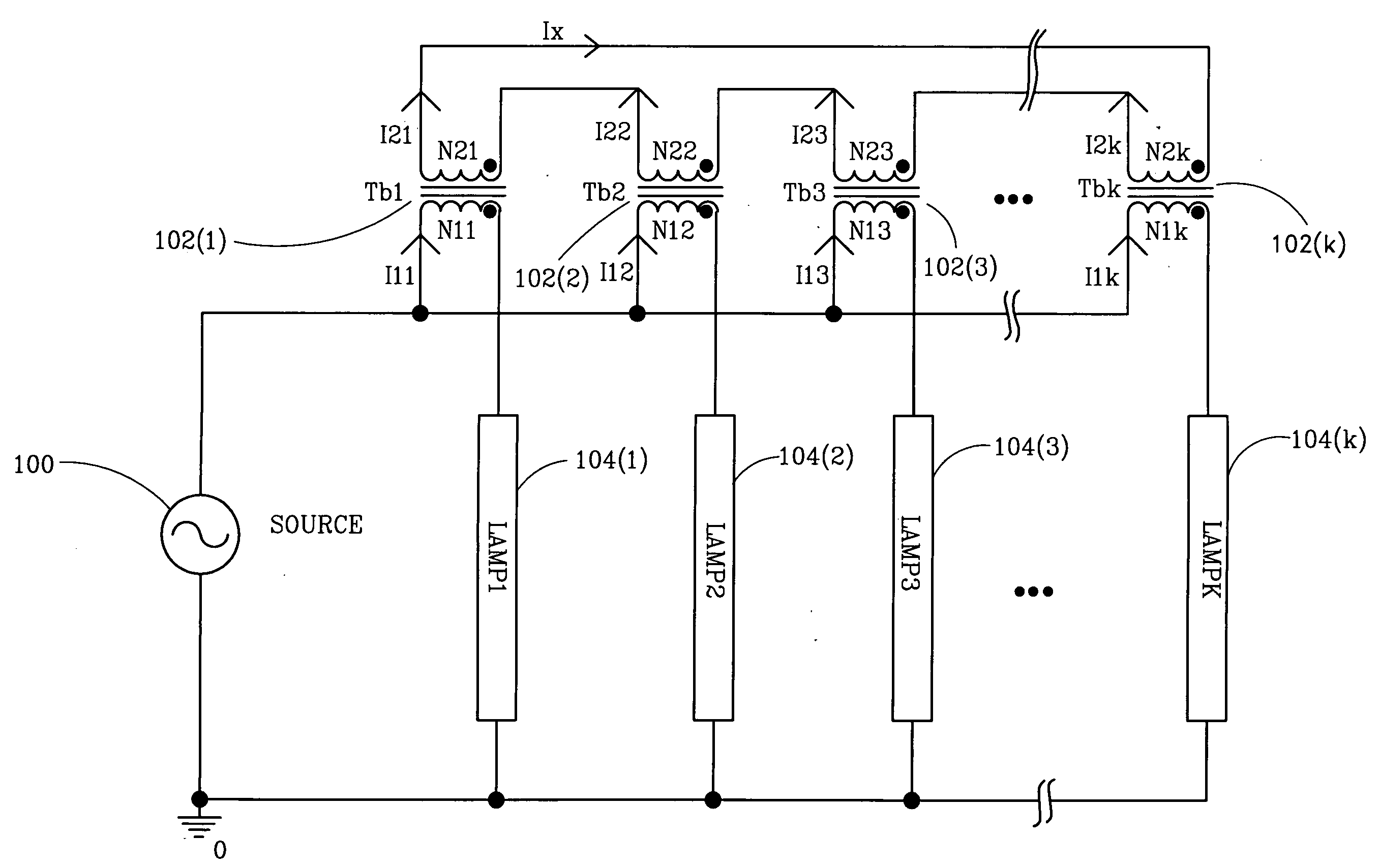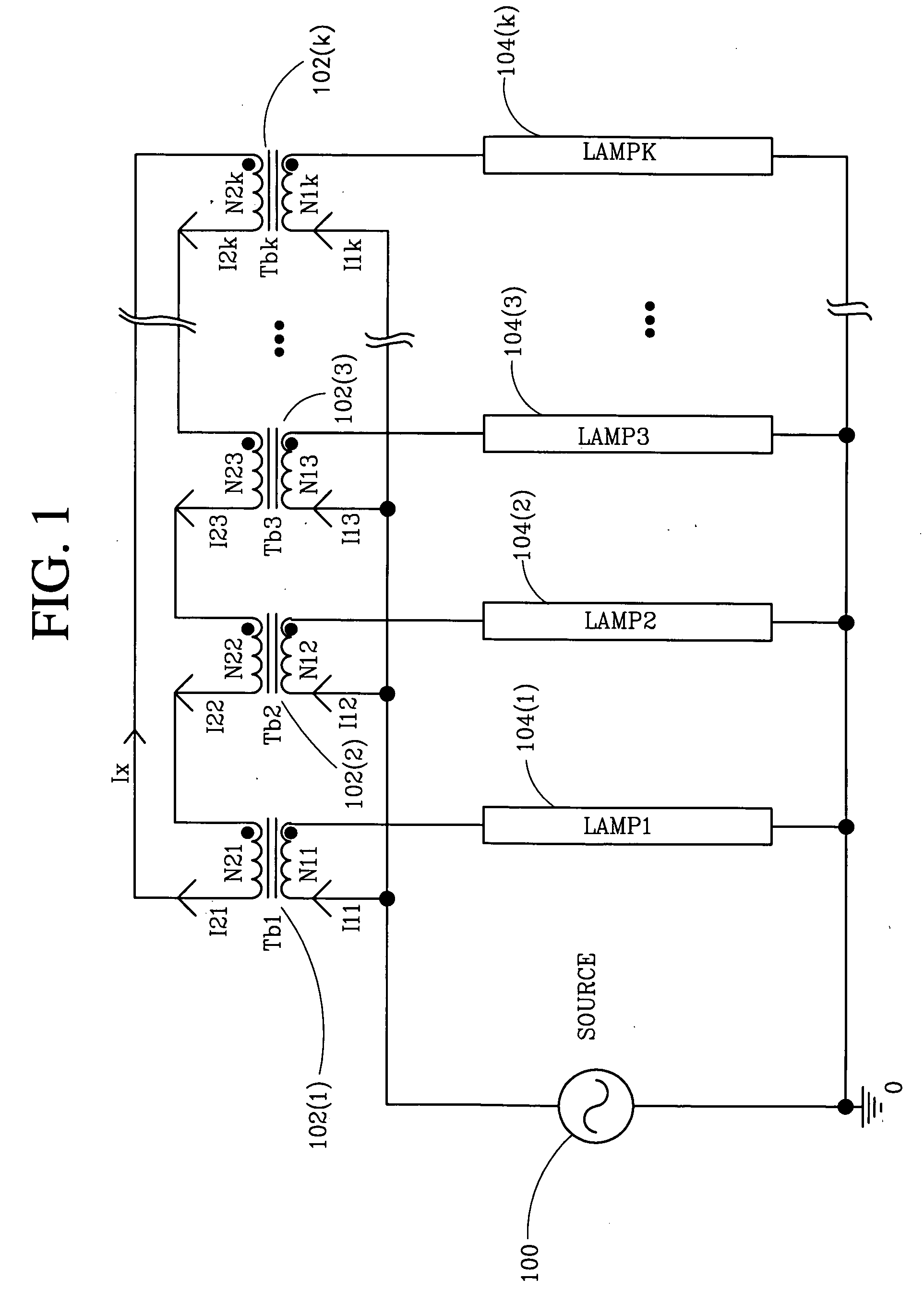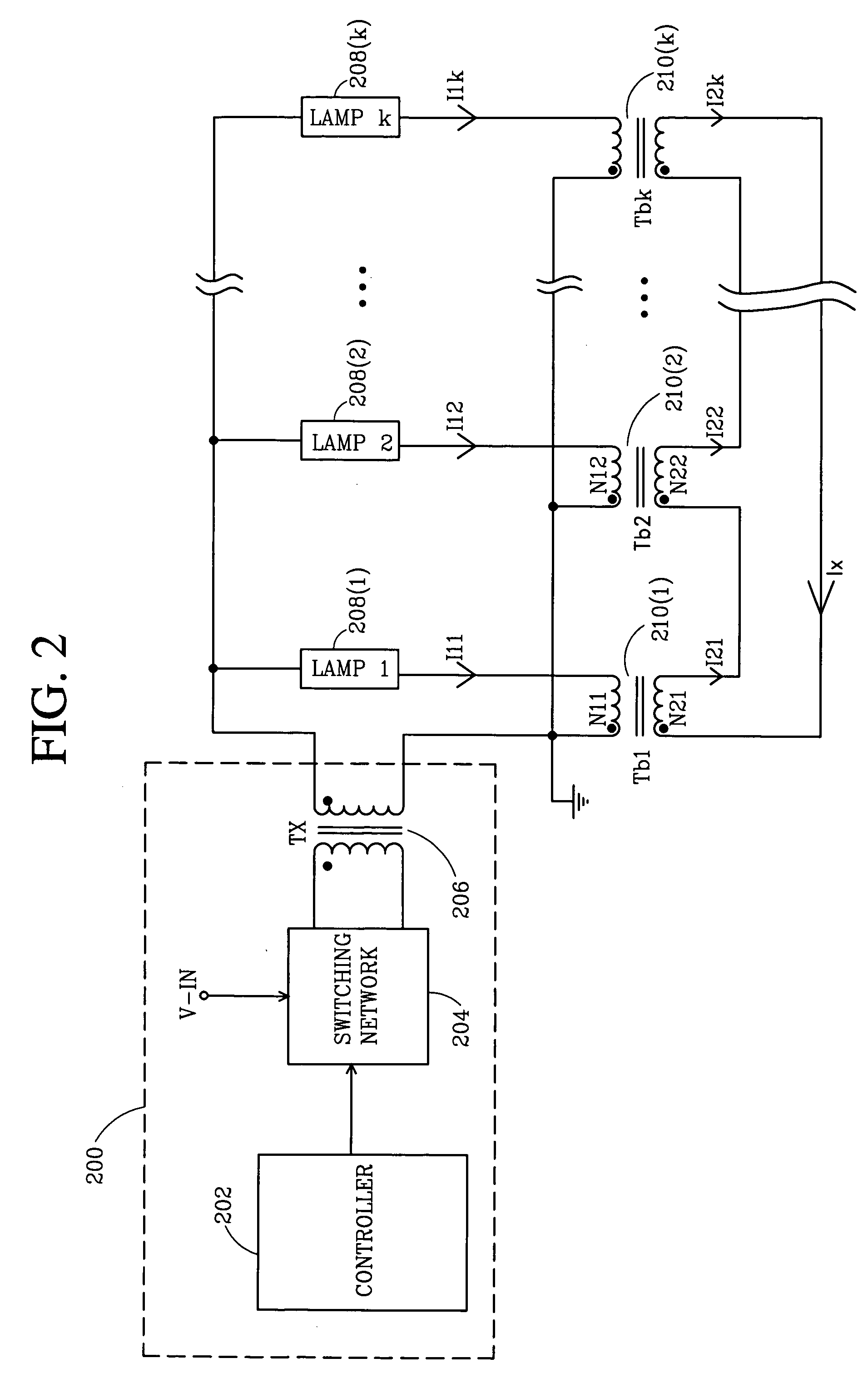Current sharing scheme for multiple CCF lamp operation
a current balancing and lamp technology, applied in the direction of fixed transformers, inductances, conversion with intermediate conversion to dc, etc., can solve the problems of reduced electronic control and power switching devices, system cost, and difficulty in achieving equal current sharing among lamps
- Summary
- Abstract
- Description
- Claims
- Application Information
AI Technical Summary
Benefits of technology
Problems solved by technology
Method used
Image
Examples
Embodiment Construction
[0031] Embodiments of the present invention will be described hereinafter with reference to the drawings. FIG. 1 is a schematic diagram of one embodiment of a backlight system with a ring balancer coupled between an input AC source 100 and high voltage terminals of multiple lamps (LAMP1, LAMP2, . . . LAMPK) shown as lamps 104(1)-104(k) (collectively the lamps 104). In one embodiment, the ring balancer comprises multiple balancing transformers (Tb1, Tb2, . . . Tbk) shown as balancing transformers 102(1)-102(k) (collectively the balancing transformers 102). Each of the balancing transformers 102 is designated for a different one of the lamps 104.
[0032] The balancing transformers 102 have respective primary windings coupled in series with their designated lamps 104. The balancing transformers 102 have respective secondary windings connected in series with each other and in phase to form a short circuit (or closed) loop. The polarity of the secondary windings is aligned so that the vol...
PUM
 Login to View More
Login to View More Abstract
Description
Claims
Application Information
 Login to View More
Login to View More - R&D
- Intellectual Property
- Life Sciences
- Materials
- Tech Scout
- Unparalleled Data Quality
- Higher Quality Content
- 60% Fewer Hallucinations
Browse by: Latest US Patents, China's latest patents, Technical Efficacy Thesaurus, Application Domain, Technology Topic, Popular Technical Reports.
© 2025 PatSnap. All rights reserved.Legal|Privacy policy|Modern Slavery Act Transparency Statement|Sitemap|About US| Contact US: help@patsnap.com



